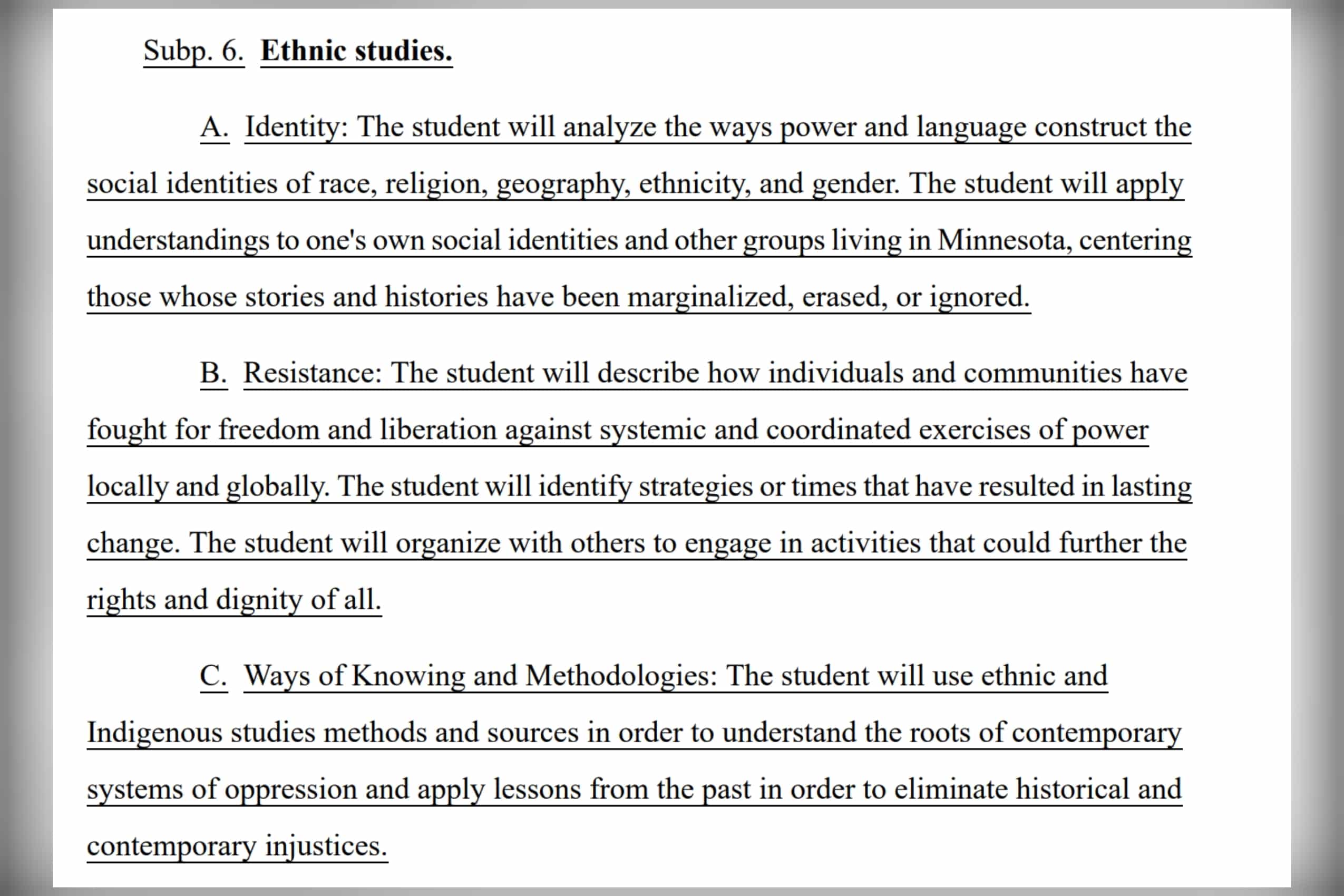
Critics of Minnesota’s proposed social studies standards made their case one last time this week before an administrative law judge, who will issue a ruling by early next year on whether the new standards for K-12 education meet statutory requirements.
“Minnesota law requires academic standards to be clear, objective and measurable. The proposed social studies standards are none of these things. They are the opposite of objective — framed in the politically driven worldview of critical social justice ideology,” Katherine Kersten, a senior policy fellow at the Center of the American Experiment, said during a Wednesday hearing.
The Minnesota Department of Education (MDE) began the decennial process of revising the state’s academic standards in social studies and accompanying benchmarks during the 2020-21 school year, a process that the center contends was hijacked by a radical activist group known as EdLib MN.
EdLib had a “two-pronged strategy,” according to the center, which included packing the committee tasked with revising the standards with its own members and allies, who would then “demand that Ethnic Studies be included in social studies curricula.”
“The ideological bias evident in MDE’s proposed 2021 Social Studies standards appears to be unprecedented in the history of Minnesota academic standards,” the center said in written comments to Administrative Law Judge Eric Lipman.
In addition to being ideological, both the center and the Upper Midwest Law Center (UMLC) argued that the revised standards fail on a technical level as well because they do not meet the legal requirement of being “objective, measurable, and grade-level appropriate.”
For instance, the standards “aim to replace grade-specific social studies standards with a single set of statewide standards for all grades, from kindergarten to twelfth grade,” according to UMLC. This “one-size-fits-all approach contradicts the statutory requirement for standards to be ‘grade-level appropriate’ and, as a result, cannot meet the essential educational needs of students across different age groups.”
Additionally, UMLC president Doug Seaton said in written comments to the judge that the proposed new strand of social studies known as “ethnic studies” violates the First Amendment rights of students by compelling them “to engage in political speech through activism.”
The ethnic studies portion of the standards requires instruction on “resistance” and asks students to “organize with others to engage in activities that could further the rights and dignity of all.”

According to Kersten, one of the leaders of EdLib MN, Brian Lozenski, has acknowledged the “partisan political agenda” of ethnic studies.
“Given the devastating impact of Israeli colonialism on the lives of people across the Arab region, Palestine is a central issue for Arab students; studying Israeli settler colonialism in comparison to US settler colonialism is illuminating for all students, and at the heart of the discipline of Ethnic Studies. But even the suggestion that Palestine might be mentioned is enough to bring forth well-funded organized attacks from pro-Israeli lobby groups,” Lozenski wrote in an article he co-authored in 2022.
As such, the Minnesota House Republican Caucus implored Gov. Tim Walz to convene a new stakeholder group to work on revisions to the standards, highlighting the parallels between the language used in the standards and that of “anti-Semitic” activist groups.
“Your proposed standards and benchmarks for social studies includes references to ‘settler colonialism’ and ‘anti-colonialism’ that share unfortunate, and hopefully unintended, similarities to the language used by the Democratic Socialists in their anti-Semitic rant against Israel and the United States. This rhetoric paints a picture that these democratically elected governments of Israel and the United States are apartheid regimes to be resisted and toppled,” the caucus wrote in a letter to Walz.
House Republicans also submitted 11 pages of public comment to Judge Lipman in which they explained why he should “reject the adoption of the proposed rule and direct the Commissioner to start over the rulemaking process.”
MDE quietly published last month a “notice of intent” to adopt its proposed social studies standards. The same day, MDE also published a “Statement of Need and Reasonableness,” or SONAR, which purports to explain why the new standards are reasonable and necessary for Minnesota public education.
The SONAR claims that Minnesota needs to “repeal and replace” its 2011 standards because the new standards “reflect continued academic research related to learning and instructional practice, and are responsive to changing needs of society.”
Lipman said during this week’s hearings that he will issue a ruling on the standards within 30 days of Dec. 6, which is when a rebuttal period closes. The public has until Nov. 29 to submit written comments. If approved, the standards will be implemented beginning with the 2026 school year.















